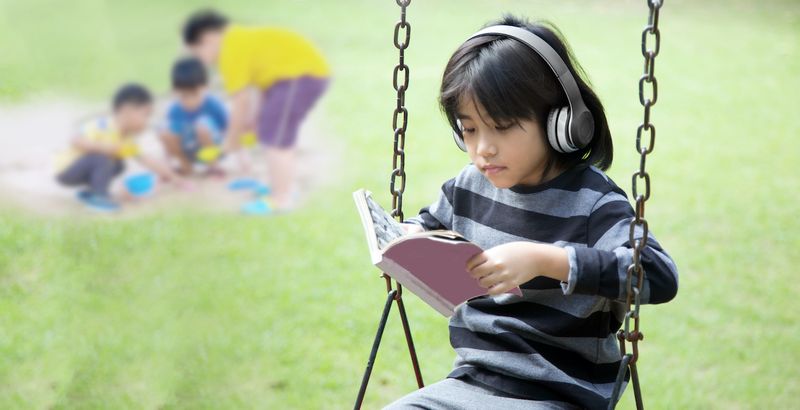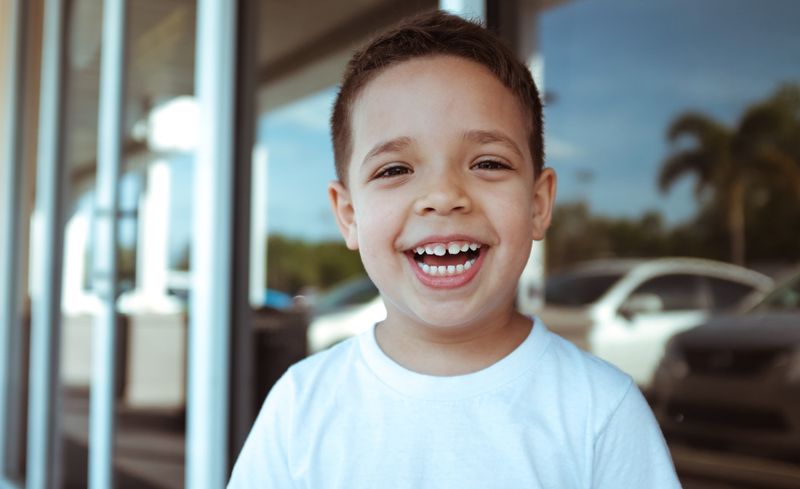Raising an introverted child comes with unique joys and challenges that many parents aren’t prepared for. Society often celebrates outgoing personalities, leaving quieter children misunderstood or pressured to change. Understanding your introverted child’s needs isn’t about fixing them—it’s about creating space for them to thrive in their own way. Here are ten common mistakes to avoid when raising an introvert.
1. Don’t Force Socialization

Many well-meaning parents push their introverted children into constant playdates and group activities, believing more social interaction equals better development. This approach often backfires, creating anxiety instead of confidence.
Introverts process social stimulation differently than extroverts. Their brains literally become overwhelmed with too much external input, making forced socialization exhausting rather than enriching.
Instead, aim for quality over quantity. Allow your child to engage in smaller gatherings with one or two friends they feel comfortable with. Honor their need for alone time after social events – this isn’t withdrawal, it’s their necessary recharge cycle.
2. Don’t Label Them as “Shy” or “Anti-Social”

Words have power, especially in shaping how children see themselves. When we repeatedly call introverted children “shy” or “anti-social,” we’re teaching them their natural temperament is problematic.
These labels create a false narrative. Most introverts aren’t afraid of social interaction—they simply prefer deeper connections with fewer people and need time to process their thoughts before speaking.
Try highlighting their natural strengths instead: “You’re such a thoughtful listener” or “I love how deeply you think about things.” This positive framing helps introverted children recognize their unique gifts rather than feeling like they need fixing.
3. Don’t Compare Them to More Outgoing Children

“Why can’t you be more like your sister?” Such comparisons might slip out when you’re frustrated by your child’s reluctance to join activities. These seemingly innocent remarks cut deep, suggesting their natural temperament doesn’t measure up.
Every child blooms differently. Your introvert processes the world through a unique lens that offers valuable perspectives. Their quieter approach isn’t a developmental delay—it’s a different, equally valid way of engaging.
Celebrate their timeline and achievements on their terms. Notice when they do step outside their comfort zone, even in small ways. A quiet child who asks one thoughtful question has often shown more courage than the naturally chatty child.
4. Don’t Dismiss Their Emotional Processing Style

Faced with upset, many introverted children retreat inward rather than immediately expressing feelings. Parents sometimes misinterpret this as stubbornness or emotional unavailability, pressing for immediate responses: “Just tell me what’s wrong!”
This approach overlooks how introverts naturally process emotions. They often need to understand their own feelings before sharing them with others. Rushing this internal process can lead to frustration for everyone involved.
Create emotional safety by offering space first, then connection. A simple “I’m here when you’re ready to talk” acknowledges their processing style. This patience builds trust and eventually leads to deeper sharing than forced conversations ever could.
5. Don’t Overschedule Their Time

Soccer on Monday, piano on Tuesday, language club on Wednesday… Many parents fill their children’s schedules hoping to provide enrichment. For introverted kids, this well-intentioned approach can become overwhelming torture.
Introverts thrive when they have unstructured downtime to pursue interests deeply rather than broadly. Without this space, they can’t process experiences or recharge their mental batteries. The resulting exhaustion often manifests as irritability, withdrawal, or even physical symptoms like headaches.
Build breathing room into their schedule. Watch for signs of overwhelm like increased irritability after activities. Remember that free time isn’t wasted time—it’s when introverts often do their most creative thinking and develop their richest inner worlds.
6. Don’t Rush Their Responses

“Cat got your tongue?” Adults often grow uncomfortable with the thoughtful pauses introverted children take before answering questions. This pressure to respond quickly can shut down communication entirely.
The silence isn’t emptiness—it’s active thinking. Introverts typically process information thoroughly before speaking, considering multiple angles rather than thinking out loud. This reflective style often produces more insightful responses when given space to develop.
Practice comfortable silence in conversations. Count to ten in your head before prompting again. You’ll likely discover your child has plenty to say when allowed to formulate thoughts at their natural pace. This patience teaches them their thoughtful communication style is valued rather than problematic.
7. Don’t Push Public Performance Before They’re Ready

From class presentations to family talent shows, performance expectations lurk everywhere in childhood. For many introverts, being the center of attention triggers genuine discomfort rather than simple nervousness.
The brain chemistry behind introversion makes public performance particularly draining. While gentle encouragement helps children grow, forcing premature spotlight moments can create lasting anxiety around public speaking.
Build confidence through gradual exposure. Start with sharing ideas in small groups before solo presentations. Offer preparation time rather than spontaneous performance. Celebrate small steps—reading to one family member before tackling the class. This scaffolded approach helps introverts develop performance skills without overwhelming their natural temperament.
8. Don’t Treat Quietness as a Problem

A quiet child at a family gathering often triggers concerned questions: “Is everything okay?” This well-meaning concern sends a powerful message that silence equals unhappiness or social failure.
Comfort with quiet is actually a strength. While extroverts seek external stimulation, introverts find richness in observation and internal processing. Your quiet child is likely absorbing everything—noticing details, making connections, and building understanding in ways talkative children might miss.
Normalize different social styles within your family. Explain to relatives that your child enjoys listening and watching. Create a signal your child can use when they need support in social situations, but avoid rescuing them from every quiet moment. Their stillness isn’t emptiness—it’s often when their minds are most active.
9. Don’t Invade Their Personal Space

“Why do you always close your door?” Many parents take personal offense when introverted children seek physical boundaries. This desire for private space isn’t rejection—it’s a crucial need for environmental control.
Sensory sensitivity often accompanies introversion. Background noise, interruptions, and even well-intentioned check-ins can disrupt the deep focus that many introverts crave and need. Their bedroom or reading nook becomes a sanctuary where they can fully relax without managing social dynamics.
Help create a special retreat within your home where your child can decompress. Establish reasonable boundaries around this space while ensuring safety. Knock before entering their room. These simple courtesies show respect for their legitimate need for solitude and teach important lessons about healthy boundaries.
10. Don’t Forget to Celebrate Their Strengths

Amid concerns about social skills, many parents overlook the remarkable gifts that naturally accompany introversion. Thoughtfulness, creativity, loyalty, and emotional intelligence often flourish in these quieter souls.
Research consistently shows introverts excel at careful observation, deep focus, and meaningful connections. These qualities translate into academic strengths, creative pursuits, and leadership styles that emphasize listening before acting. Their natural tendency toward independent thinking often leads to innovative solutions.
Point out specific strengths you notice: “I appreciate how you really listened to your friend’s problem today” or “Your story shows amazing attention to detail.” By highlighting these inherent gifts, you help your introverted child develop confidence in their natural approach to the world rather than trying to become someone they’re not.

Comments
Loading…